#first point can alternatively be understood as: varadha honor IS deva's to protect
Explore tagged Tumblr posts
Text
deva: a weapon.
the movie does everything to show us that deva holds no agency over himself or his actions and that he has no ambition whatsoever.
his main trait is loyalty, and this is emphasized again and again.
• he is enraged at the mistreatment of aadhya, but where an actual 'hero' would save her, disregarding any rules or conditions – he remains bound by his mother's words.

• he is a weapon in the hands of anybody he gives his loyalty to, and throughout the movie, all of his actions aren't really credited to him, but to the person he commits these acts for/with permission of:
1. in the first scene, we see both deva and varadha, without hesitation, understand that deva has to complete the task for varadha's honor

2. it's evident, when bilal tells aadhya, that the only person who can keep her safe is 'amma' (because it is true, only deva's mother can allow deva to help)

3. when we are first introduced to deva, it is through his mother describing him as a "blood-shedding weapon"
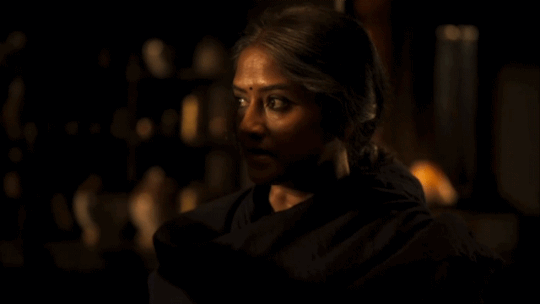
4. when varadha comes to ask deva to accompany him, the narration doesn't feel accurate. varadha has barely voiced his request for deva to go with him – it is actually deva who wants to protect him after seeing his condition, but the narration is: "on one hand varadha had decided to take deva, no matter what, and on the other hand, his mother would not allow him to go" further emphasizing that deva is comparable to an object between the only two people who 'own' him
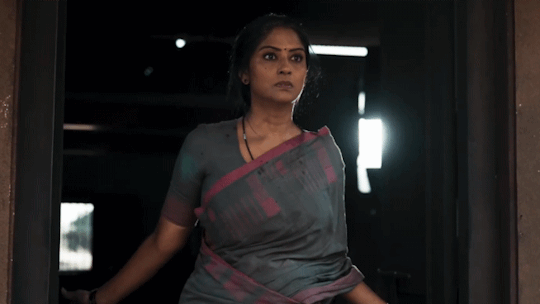
5. in the first action sequence, after his mother releases him from the promise he made to her, we have this shot:

framing deva's mother as if it is her who is responsible for that first blow
6. even after she has given him agency over himself, he still follows his mother's orders, not bothering to put any energy into what he thinks is the correct thing to do

7. we also see this when radha rama blames varadha for vishnu's death and has to be reminded that – no. it was the new guy who dealt the blow.
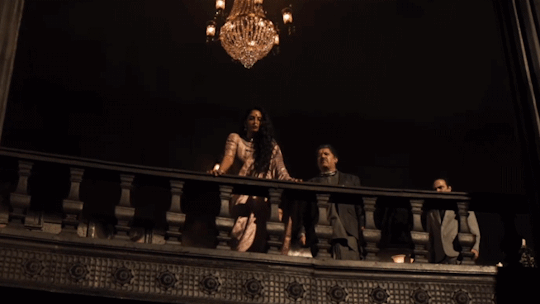
8. and again, when naarang heads in varadha's direction, completely disregarding deva and all of deva's attempts to provoke him, even though deva is the one who killed vishnu

it's an interesting way of depicting his personality – the movie equates him to a weapon at every turn, either metaphorically or though dialogue

which also makes it extremely significant, that the ONLY TIME deva has ever acted on his own (according to what we know) is when he: 1. went against his mother: to make a promise to varadha instead 2. did not follow varadha's explicit instructions: and pleaded with naarang to leave varadha alone
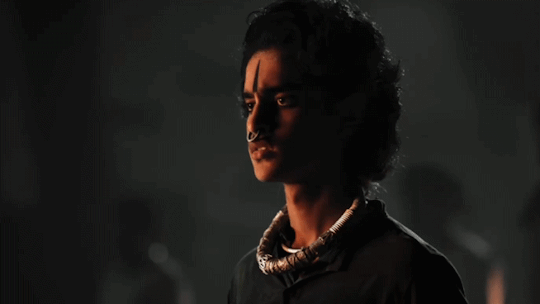
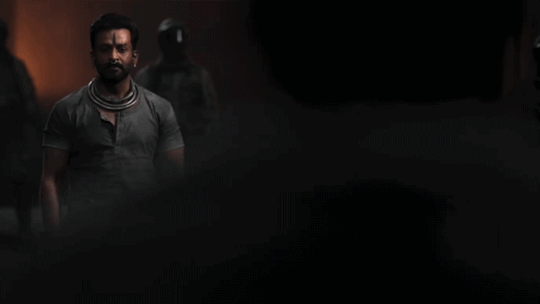
deva only breaks free from the narrative for varadha – which really speaks about varadha's importance and the power that varadha holds over deva.
#first point can alternatively be understood as: varadha honor IS deva's to protect#deva: a weapon to be wielded by those he gives himself to#character analysis#devaratha raisaar#salaar#prabhas#varadeva
361 notes
·
View notes